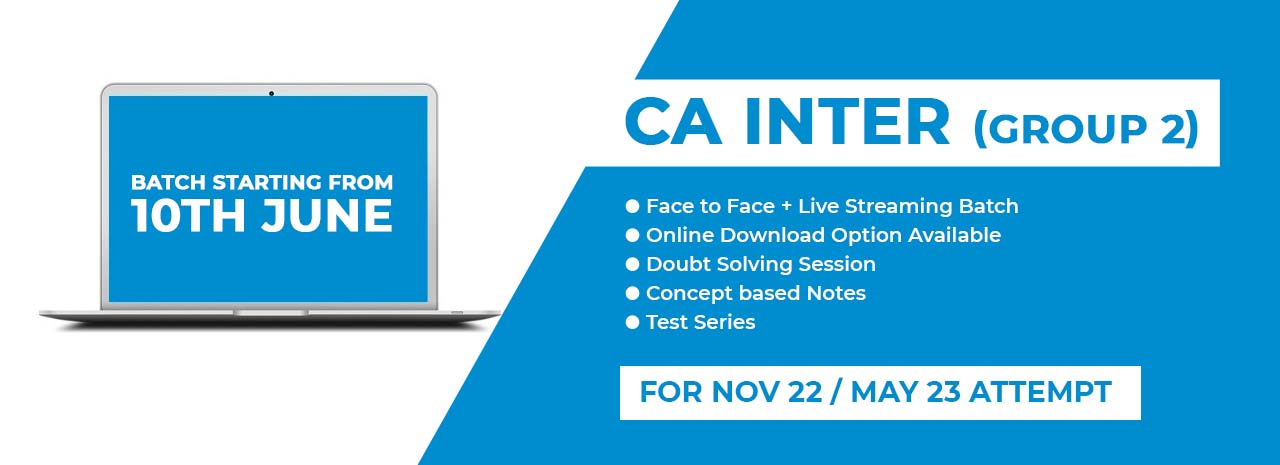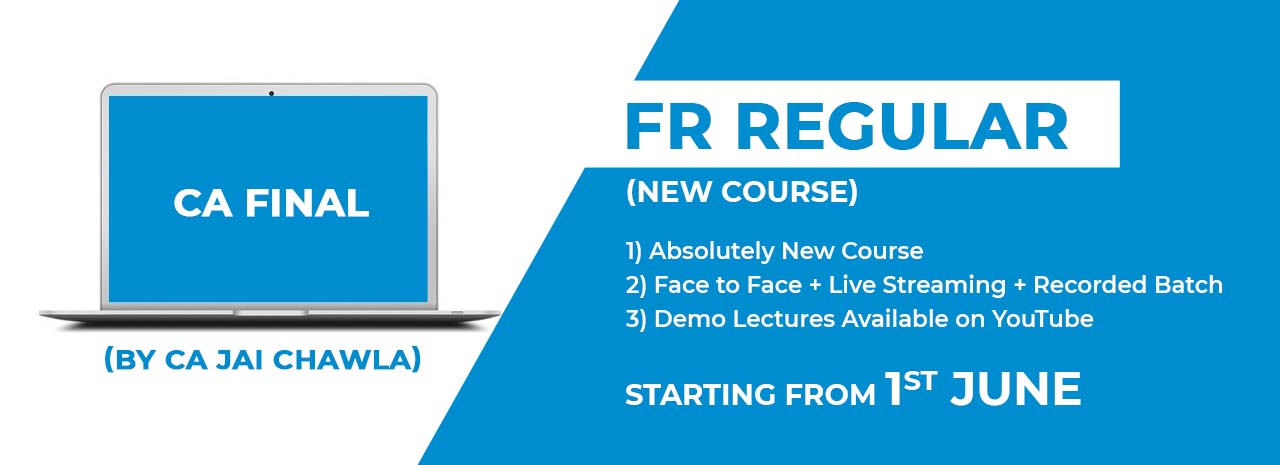The CA Foundation exam is an essential part of the process for the students pursuing a CA future. Hence it is important to know the minute details of this exam so that the students can prepare for the exam better.
The CA Foundation Exam is held twice a year. Once in May and once in December. The exam involves 4 papers of 100 marks each. Here you will get all the required details regarding the CA foundation exam. Right from the exam pattern to the weightage breakdown of each topic.
This will help you get clarity regarding the exam and help you prepare yourself accordingly. Understanding the exam pattern will help you get an overview of what kind of preparation is required to crack the exam. Knowing the topic-wise weightage will help you know how much time you have to invest in each matter.
CA Foundation Paper Pattern
Read on to get all the required information regarding the CA Foundation exam in one glance. This table tries to cover most of your questions regarding the exam.
| Particulars | Details |
| Exam Name | CA Foundation |
| Conducting body | The Institute Of Chartered Accountants of India (ICAI) |
| Exam Mode | Online centre based |
| Frequency of Exam | TWICE in a year
|
| Level of exam | National level |
| Difficulty Level | Easy to Moderate |
| No. of Papers | 4 |
| Question papers | The CA Foundation exam involves 4 papers:
|
| Exam Duration |
|
| Question Type |
|
| Marks | Each paper is of 100 marks. |
| Total marks | 400 |
| Marking scheme |
|
| Medium of exam | English/Hindi
(Except for Paper 2, Section b, which will be in English only.) |
CA Foundation Passing Marks in 2022:
The minimum requirement for passing the CA Foundation exam is as follows:
You should have a minimum score of 40% marks on each paper. Your aggregate of all the papers should be a minimum of 50% marks. Remember that some papers are subjected to negative marking. As mentioned above, papers 3 and 4 have negative marking and are objective-type questions. So be prepared with your topics to avoid negative marking.
Topicwise weightage
Knowing the topic-wise paper weightage is always helpful in breaking down your syllabus and studying efficiently. Getting to know which topic has how much weightage makes it easy to prioritize which topic to start with and then sequence the rest.
Paper 1 – Principles and Practice of Accounting
Marks: 100
| Sr.No. | Topics | Weightage |
| 1. | Theoretical Framework | 5-10% |
| 2. | Accounting Process | 25-30% |
| Bank Reconciliation Statement | ||
| Inventories | ||
| Concept and Accounting of Depreciation | ||
| 3. | Accounting for Special Transactions | 15-20% |
| 4. | Final Accounts of Sole Proprietors | 30-40% |
| Partnership Accounts | ||
| Financial Statements of Not-for-Profit Organisations | ||
| 5. | Introduction to Company Accounts | 10-15% |
Paper 2: Business Laws and Business Correspondence and Recording
Marks – 100
| Sr.No. | Topics | Weightage |
| Section A: Business Laws | 60 Marks | |
| 1. | The Indian Contract Act, 1872 | 25-35% |
| 2. | The Sale of Goods Act, 1930 | 20-25% |
| 3. | The Indian Partnership Act, 1932 | 20-25% |
| 4. | The Limited Liability Partnership Act, 2008 | 5-10% |
| 5. | The Companies Act, 2013 | 15-20% |
| Section B: Business Correspondence and Recording | 40 Marks | |
| 1. | Communication | 10-15% |
| 2. | Sentence Types and Vocabulary Vocabulary Root Words, Synonyms, Antonyms, Prefixes, Suffixes, Phrasal verbs, Collocations and Idioms |
20-30% |
| 3. | Comprehension Passages and Note-Making | 20-30% |
| 4. | Developing Writing Skills | 35-40% |
Paper 3 – Business Mathematics, Logical Reasoning and Statistics
Marks – 100
| Sr.No. | Topics | Weightage |
| Part A- Business Mathematics | 40 Marks | |
| 1. | Ratio and Proportion, Indices and Logarithms | 20-30% |
| Equations and Matrices | ||
| Linear Inequalities | ||
| 2. | Time Value of Money | 30-40% |
| 3. | Permutations and Combinations | 30-50% |
| Sequence and Series | ||
| Sets, Relations and Functions | ||
| Basic applications of Differential and Integral calculus part | ||
| Part B- Logical Reasoning | 20 Marks | |
| 1. | Number series coding and Decoding and the odd man out | 60-70% |
| Direction Tests | ||
| Seating Arrangements | ||
| 2. | Blood Relations | 30-40% |
| Syllogism | ||
| Part C- Statistics | 40 Marks | |
| 1. | Statistical Representation of Data, Diagrammatic representation of data, Frequency distribution, Graphical representation of Frequency Distribution in the form of Histogram, Frequency, Polygon, Ogive, Pie-chart | 45-50% |
| Measures of Central Tendency and Dispersion: Mean, Median and Mode, Mean Deviation, Quartiles and Quartile Deviation, Standard Deviation, Coefficient of Variation, Coefficient of Quartile Deviation | ||
| 2. | Probability: Independent and dependent events; mutually exclusive events. Total and Compound Probability; Bayes’ theorem; and Mathematical Expectation | 25-30% |
| Theoretical Distribution: Binomial Distribution, Poisson distribution–basic application and Normal Distribution – basic applications. | ||
| 3. | Correlation and Regression: Scatter diagram, Karl Pearson’s Coefficient of Correlation Rank, Correlation, Regression lines, Regression equations and Regression coefficients | 10-15% |
| 4. | Index Numbers and Time series | 10-15% |
Paper 4 – Business Economics and Business and Commercial Knowledge
Marks – 100
| Sr.No. | Topics | Weightage |
| Part 4A- Business Mathematics | 60 Marks | |
| 1. | Introduction to Business Economics | 15-20% |
| 2. | Theory of Demand and Supply | 35-40% |
| Theory of Production and Cost | ||
| 3. | Price Determination in Different Markets | 25-30% |
| 4. | Business Cycles | 15-20% |
| Part 4B- Business & Commercial Knowledge | 40 Marks | |
| 1. | Introduction to Business | 15-18% |
| 2. | Business Environment | 15-18% |
| 3. | Business Organizations | 15-18% |
| 4. | Government Policies for Business Growth | 15-18% |
| 5. | Organizations Facilitating Business | 15-18% |
| 6. | Common Business Terminologies | |
Hope you got a thorough breakdown of all the topics in the syllabus and their weightage. Now all you have to do is divide your time accordingly so that you can effectively cover the entire CA Foundation syllabus and score better marks.



